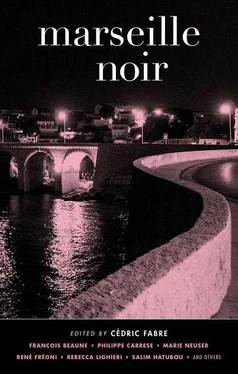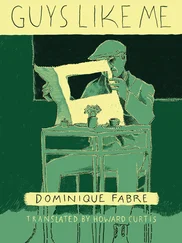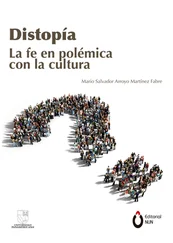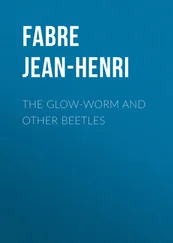Cédric Fabre - Marseille Noir
Здесь есть возможность читать онлайн «Cédric Fabre - Marseille Noir» весь текст электронной книги совершенно бесплатно (целиком полную версию без сокращений). В некоторых случаях можно слушать аудио, скачать через торрент в формате fb2 и присутствует краткое содержание. Год выпуска: 2015, Издательство: akashic books, Жанр: Крутой детектив, на английском языке. Описание произведения, (предисловие) а так же отзывы посетителей доступны на портале библиотеки ЛибКат.
- Название:Marseille Noir
- Автор:
- Издательство:akashic books
- Жанр:
- Год:2015
- ISBN:нет данных
- Рейтинг книги:5 / 5. Голосов: 1
-
Избранное:Добавить в избранное
- Отзывы:
-
Ваша оценка:
- 100
- 1
- 2
- 3
- 4
- 5
Marseille Noir: краткое содержание, описание и аннотация
Предлагаем к чтению аннотацию, описание, краткое содержание или предисловие (зависит от того, что написал сам автор книги «Marseille Noir»). Если вы не нашли необходимую информацию о книге — напишите в комментариях, мы постараемся отыскать её.
Marseille Noir — читать онлайн бесплатно полную книгу (весь текст) целиком
Ниже представлен текст книги, разбитый по страницам. Система сохранения места последней прочитанной страницы, позволяет с удобством читать онлайн бесплатно книгу «Marseille Noir», без необходимости каждый раз заново искать на чём Вы остановились. Поставьте закладку, и сможете в любой момент перейти на страницу, на которой закончили чтение.
Интервал:
Закладка:
The sun was stuck behind the horizon, leaving shreds of orange-tinted clouds in the sky, torn by the wind. The night seemed to have surged out of the bowels of the city, out of the depths of Le Panier, to spread over the port and swallow up, one by one, the metallic reflections on the gates and the belly of the ships. The cranes had just been lit up, dressed now in their blue and green lights, suggesting that the postindustrial age could also be a promise of celebration.
The wheat-sucker quickened her step. “Come on, let’s move it.”
I let go of her hand. I had never been relaxed with women, especially women like her, with their pungent perfume of freedom, even if the wheat-sucker was mostly trailing a sour smell of iodine, moldy seaweed, and rust.
All around us I could make out silhouettes trotting toward the north. They were coming out from all over — from sheds, from behind the low walls and containers, from the roofs of buildings, and from footbridges. They dropped from there, supple as cats, and landed on heaps of sand before starting to run. Dozens of shadows converging in silence, like us, toward the silo.
“We are all shadows,” whispered the wheat-sucker. “The docks have never been well lit. A problem merchants used to gripe about whenever they weren’t complaining about the scarcity of weighers on the waterfront. A weird profession, those weighers had: the guys had to know how to read and do arithmetic, but mostly prove they were honest. But us, we’re light. We don’t weigh anything — we’re not worth anything and we’re not a weight on anyone’s shoulders.”
I nodded dully. I was out of breath and my lungs were on fire.
“You’re not into sports, clearly. The longshoremen carried fifty-kilo bags, so at the end of the day they’d lifted close to forty tons. ”
“I don’t know a thing about the life of the longshoremen. When they tell me about working at an ungodly pace I only think of Jimi Hendrix solos.”
She shrugged and quickened her step still more.
The shadows were going through the wire fences and jumping over obstacles. Nothing stopped their progress. We scaled concrete barriers, hoisted ourselves onto the hoods of cars waiting in line for the ferry to Algeria: soon, it would open its hull like an ulcerous mouth under the astonished eyes of the drivers smoking cigs at the wheel. We then followed railroad tracks and I almost tripped over the rails embedded in the asphalt.
“Why’s everybody running? Couldn’t we walk there at a normal pace?”
“We’ll get there late and it might be packed. Most of the people running around you have no place to sleep and the silo’s a warm place to spend the night. A storm’s coming.”
The silo d’Arenc was the emblem of the port. When you came into Marseille by car across the bridges and over the docks, it hit you right in the face. Over sixty feet high, the silo stood out in stark contrast to this dizzying horizontal landscape. It marked the entrance to the city, just before you dove into the tunnel and emerged a few hundred yards later onto the Vieux-Port — the yachtsman’s paradise. The old silo had finally been rehabilitated and was now a theater. It became clear that its rich history as a major trading and shipping port was over when the ruins of its industrial past were converted into cultural venues: a tobacco factory had become a multicultural multimedia center in La Belle de Mai and old warehouses were now harboring music stages at Dock des Suds. Museums had sprung from the earth, from the Archives to the MuCEM, the Frac and the J1; now they defined the neighborhood of the port. Recently, people had started talking of Marseille as a “world city” and you couldn’t help wondering — so out of it did the place seem — if it would one day be included in that other concept the north had created to reassure and flatter the south: the “global village.” All I could see here was No Future. In fact, during the last French tour by the Ramones, in 1977, Marseille was the only city where they hadn’t been able to play. The power supply couldn’t handle the sound system and the amplifiers.
The sucker slowed down at the foot of the silo, where the crowd was forming an orderly line at the entrance. They were wearing clothes from all four corners of the earth. There were the inevitable Rastas, of course, in Peruvian toques; a group of guys wearing Scottish kilts, and flip-flops; a whole bunch of people sporting Olympique de Marseille T-shirts, but also teenagers wearing animal prints. I followed the sucker inside and had barely made it into the hall with its huge ceiling when I began feeling as oppressed by the dancing as I was by the shouting and the chaotic beams of the projectors. Upstairs, on the two balconies that stretched over the whole length of the hall on each side, some people were screaming to attract attention to themselves. The bass was pulsating throughout my body. On stage, the group’s guitarist was playing harsh riffs while the singer screamed out aggressive slogans in English: “No people! No fun! No football! No feelings! No me! No dock! No sea! No food! No city!”
In one of the recesses under the first mezzanine, I could make out windows illuminated by blue, white, and red neon lights. Groups of onlookers had clustered in front of them. Some of them were making monkey calls, with their hands flattened on the window panes. I walked over to them. A sign read, (post-)Colonial (un)Fair. Behind the panes stood men and women in traditional Provençal garb: a woman in a recreated old-style kitchen wearing a white lace bonnet, a black corset, and a flowery dress was cutting vegetables on an oak table in front of a big copper pot sitting on an old stove top. Next to it, in another enclosed space of a few square yards, a hunter in a red shirt and scarf, short pants, and big clumpy shoes stood motionless with one eye shut, aiming at a stuffed rabbit in a scrubland décor that recreated the Provence garrigue; in the background, a child with his hands in the air was acting delighted. It looked like a live Provençal crèche except for the last tableau, where you saw an old man in jeans and a T-shirt mowing the lawn of his modern villa, depicted on a mural.
I heard a voice behind me and turned around. An old artist with a pipe in his mouth wearing a cap and a sailor’s sweater was making a speech in a thick voice with a northern French accent: “In 1906, Marseille held a phenomenal colonial exhibition where France put on a display of its colonies and their natives. We never should have stopped that tradition, so we have concocted a fine one here for you, with real natives from Aubagne and Aix, from the foot of Mount Sainte-Victoire to the foot of Sainte-Baume. Look at that kitchen, it’s totally period. Provence, for us Marseille people — first-rate citizens in a third-worldized urban mess — it’s the Promised Land, a pioneer utopia, it’s the Jeffersonian American Dream in the valleys of the Arc and the Huveaune rivers.”
I shuddered. “You should display some Marseille people in your windows. Marseille is our true colony, our own far-off, foreign country, our ultimate dream of exoticism.”
“You don’t like it?”
“Not really. I grew up near the Garlaban — you know, the ‘lonely moorland that stretches from Aubagne to Aix’ as Pagnol said. Mule paths, wild rosemary, and savory, does that ring a bell?”
“You’re oversensitive.” The sucker pulled me by the arm. “Come on, relax. They’re actors, don’t worry, no peasants have been harmed.”
“Why’re you following me like this, what do you want from me?”
“I’m your guide. You’re lost and there’s something you have to do. When you’re done with your mission, you’ll take care of me.”
“It’s this goddamned port. Nothing seems to make sense. I’ve been seasick for the past three days. Right now, it’s Phocéa I’m interested in.”
Читать дальшеИнтервал:
Закладка:
Похожие книги на «Marseille Noir»
Представляем Вашему вниманию похожие книги на «Marseille Noir» списком для выбора. Мы отобрали схожую по названию и смыслу литературу в надежде предоставить читателям больше вариантов отыскать новые, интересные, ещё непрочитанные произведения.
Обсуждение, отзывы о книге «Marseille Noir» и просто собственные мнения читателей. Оставьте ваши комментарии, напишите, что Вы думаете о произведении, его смысле или главных героях. Укажите что конкретно понравилось, а что нет, и почему Вы так считаете.












